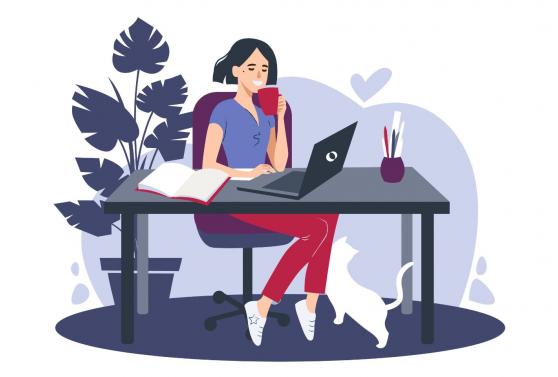CIVIC's COVID experience

The impact on the economy of the COVID pandemic has been profound, with many businesses unable to open their doors and the day to day activities of others changing dramatically.
This, coupled with the impact of being cut off from direct contact with friends and family, as well as work-related contacts, has negatively affected many of us. As a Director at CIVIC, it is part of my job to help minimise this negative impact and make sure that we can keep on delivering quality for our customers and a positive working environment for staff.
Despite the uncertainty and concerns of this unprecedented period, we remain focused on maintaining the business as usual and winning new work. In this blog post, I will try to explain some of the events and actions we took that helped CIVIC adapt so effectively to this new—but hopefully only temporary—world. So, how have the team at CIVIC been affected, and what impact has it had on our work?
Leaving the office
CIVIC’s directors convened immediately as lockdown was imposed to discuss closing the office and cutting travel, marking the first real event of the pandemic. As we made these decisions and talked through the possible issues, we agreed that the technology already in place allowed everyone in the company to work from home (with many of our team already working across the UK and Greece this was very familiar territory). When we had established these new measures, we promptly sent an email out to all CIVIC’s staff, customers and critical suppliers to keep them both informed of the changes and reassured that business would continue. As with everything, clear communication is key, especially in events like this.
Over the first few days of working entirely from home, we had to change a few things; add more people to the phone system, reset a few passwords, but nothing too tricky, thankfully. People quickly got into a pattern of working from home and before long, work at CIVIC was once again seamless.
Workshops
The impacts of COVID on CIVIC did not reach our technical functions, as our business continuity planning had covered all the core activities. This stability allowed us to experiment and find better ways of delivering some of our services, so the changes came when the teams looked at how we were going to deliver workshops and manage our meetings with clients without being able to physically visit them.
Our UX team was already familiar with conducting remote research and began sharing their tools and knowledge with the rest of the company. Thanks to their efforts, and even with the pandemic ongoing, a company decision to re-examine who we are and our branding gave us the perfect opportunity to test-run hosting and facilitating an internal remote workshop. As a participant in this workshop, it was apparent that the team was able to successfully adapt to the new form of delivery quickly. Key to this was the implementation of various remote collaboration and conferencing tools such as Zoom, Figma, Miro etc, that allowed everyone involved to not only see each other but to work on the same documents together at once.
Client meetings
At the start of lockdown, it was noticeable that there was an increase in the number of meetings. Shifting these to Skype and Zoom was relatively easy from a technical perspective, and with many of the long-term relationships, it was a straightforward process. With the newer clients, the virtual environment made it harder to build the relationship; it became evident that everyone was going through a period of adaptation to virtual meetings. Taking the initiative, we worked with all new and long term clients to find what platform works for them, developed more regular catchup schedules and defined the types of outputs that worked for each. It became apparent that we had to tailor how we communicated with each individual, it was the time and effort the staff gave to building these relationships that allowed us to in a time of restrictions strengthen this essential part of any successful project.
Staff and contact
Perhaps the most significant change, and possibly the most positive, was that the practice heads very quickly adapted to managing their teams and projects remotely, and so to the outside world there was no change in what was being delivered. Deliverables we produced during this period include services and products for clients such as the Small Business Commissioner, Extractive Industries in the UK, Studyhub, and many others besides.
Internally, when the team leads picked up that the social contact between staff was dropping, regular social zoom calls were established along with check-ins to see how their teams were doing. The regular calls brought the teams together from across Europe and made sure that the whole company was all in touch regularly, with conversations ranging from TV shows, books, music and even the best place to get toilet rolls!
How was the impact on CIVIC minimised?
I believe there are three main reasons for this:
- All the technology was already in place for remote work, and we had a reliable, tested business continuity plan.
- We were open with the customers and suppliers about what we were doing and made sure we frequently communicated with them.
- The staff all embraced the changes, focused on resolving the issues that we experienced and on making sure they all stayed connected.


